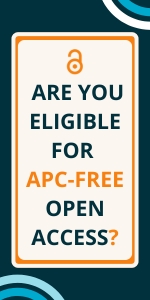
Australian Journal of Primary Health
Volume 26 Number 2 2020
PY19078Recommended methodologies to determine Australian Indigenous community members' perceptions of their health needs: a literature review
PY19078 Abstract | PY19078 Full Text | PY19078PDF (187 KB) Open Access Article
PY19184OPEN ARCH: integrated care at the primary–secondary interface for the community-dwelling older person with complex needs
PY19169GP services in Australia: presentation profiles during usual practice hours and after-hours periods
This study aimed to understand what happens at after-hours general practitioner services as it has been shown that these after-hours services can reduce emergency department demand. The patient mix, GP characteristics, problems managed and management actions in after-hours care differ significantly from those in usual-hours care in Australia. This greater understanding of after-hours care is the first step to informed resource allocation to improve the delivery of after-hours primary care.
PY19169 Abstract | PY19169 Full Text | PY19169PDF (176 KB) Open Access Article
This paper is on a topic of increasing policy importance. With the aging of the population, the pressure on our aged care facilities will become intense. This paper highlights how GPs, the main source of clinical supervision in residential aged care, do their job and what the issues are that facilitate and impede their participation.
PY19059Appropriateness of the Asylum Seeker Resource Centre-adapted Refugee Health Assessment Tool
PY19049Identifying inequities in an urban Latin American population: a cross-sectional study in Australian primary health care
PY19191'I had to tell my GP I had lung cancer': patient perspectives of hospital- and community-based lung cancer care
 , Anke Hoskins, Emily Watters, Jeanie Leong, Christobel Saunders and Neli Slavova-Azmanova
, Anke Hoskins, Emily Watters, Jeanie Leong, Christobel Saunders and Neli Slavova-Azmanova
Lung cancer care occurs in the hospital and the community and good communication between all healthcare providers is essential. Many patients experienced delayed or incomplete communication practices and reported the burden of information transfer falling on them. Most patients wanted their GP to be well informed about their cancer care. Early GP involvement and two-way communication between health professionals looking after lung cancer patients is needed to support patients in their journey.
PY19183Preventative and early intervention diabetes-related foot care practices in primary care
Lower limb amputation is one of the most feared complications of diabetes. Healthcare professionals, particularly in primary care, are responsible for providing evidence-based preventative and early intervention foot care. Despite global consistency of guidelines, adherence to best-practice recommendations in primary care are inconsistent. Understanding and addressing the barriers and enablers faced by primary care health professionals when providing foot care is the next step in promoting better outcomes for people with diabetes.



